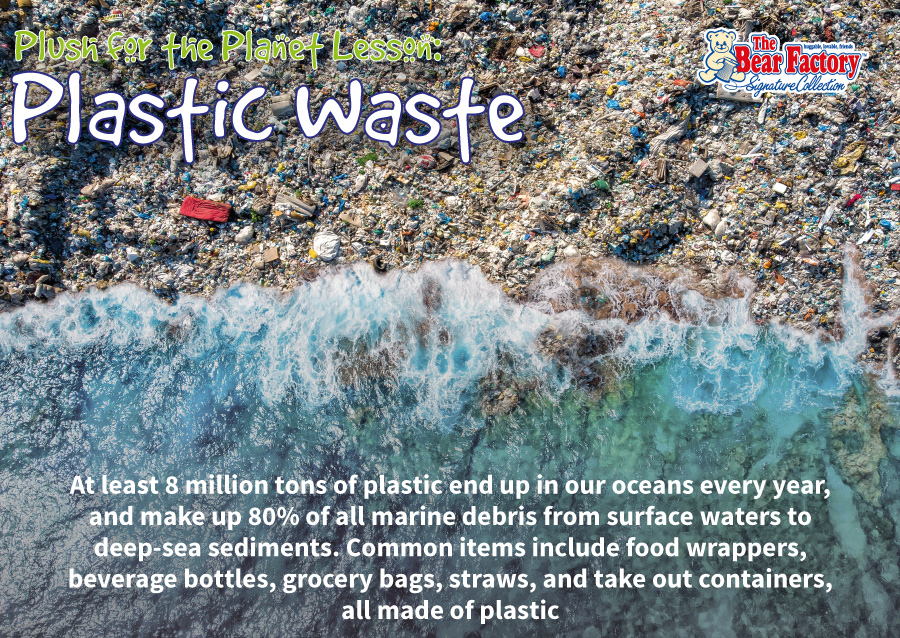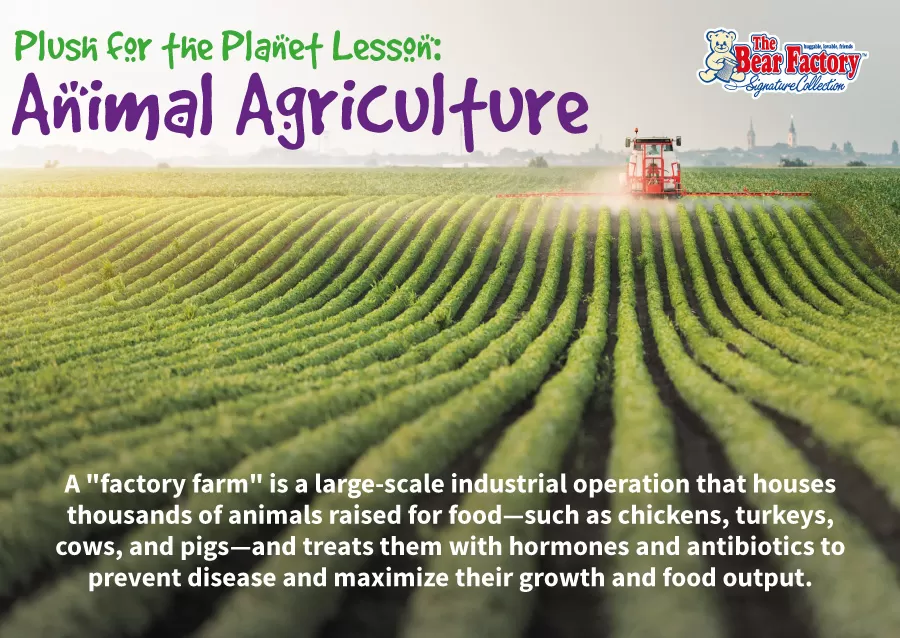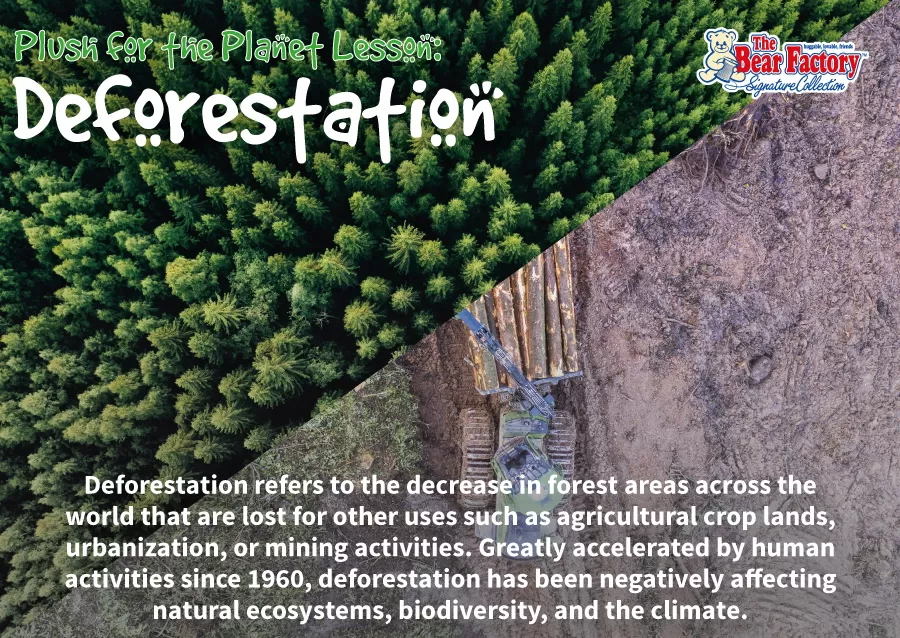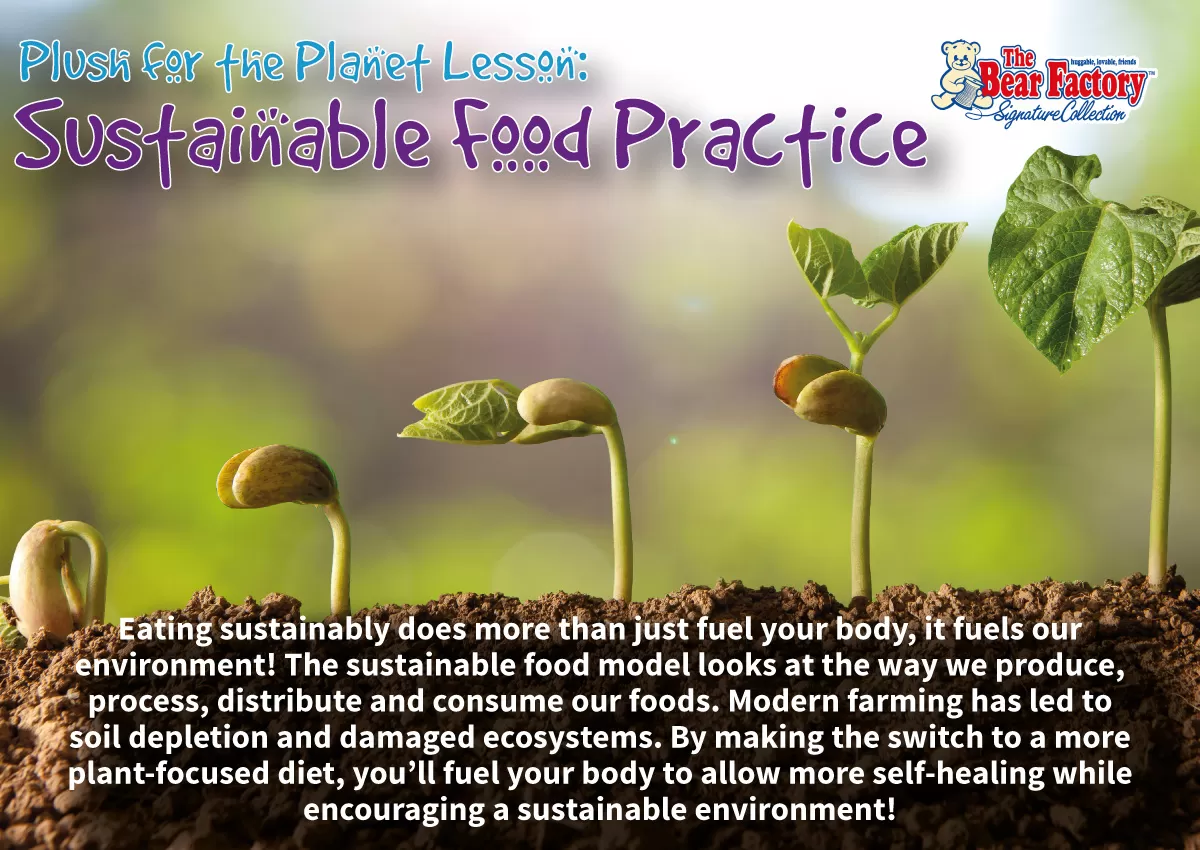Operation Conservation
Change Through Education
In recognition of Earth Month in April, we’re proud to present #OperationConservation. This initiative highlights endangered species in our collection to raise awareness and educate. A portion of sales from these items will be donated to a selected organization. Below, you’ll find unique postcards—ready for digital or print use—focused on key environmental topics and practical ways to make a difference daily, as well as a selection of our eco-conscious plush products.
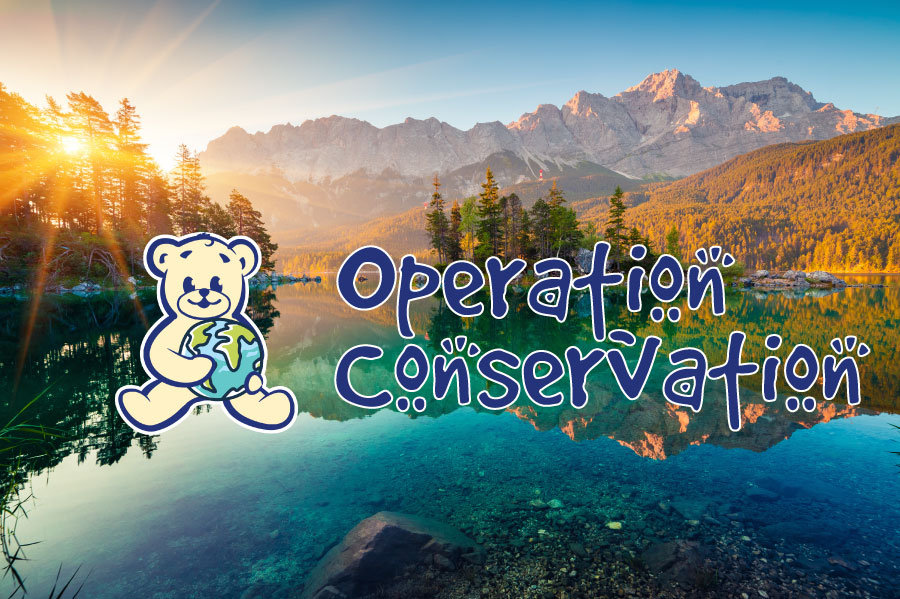
Conservation Corner: Education Postcards
Download and print these free postcards to help educate children and adults alike on various environmental topics.
Click the picture for a Print-ready PDF.
Plush for the Planet
We had a mission as a company to move towards a more sustainable future, which is why we came up with our Plush for the Planet line of products— the world’s first sustainable build-your-own plush line. This sustainable collection of plush animals is made from 100% recycled fabrics, that help reduce waste without sacrificing quality.
Sustainable Plush Line
16" Great Wolf Lodge Grey Wolf
In Stock
Custom Plush Project for GWL – Not for Public Purchase
Note: Plush Animal is Unstuffed | Click Here for Stuffing Options
SKU: 80050
16" Roo the Red Panda (Eco)
Sustainable Materials
Tariff Surcharge
In Stock
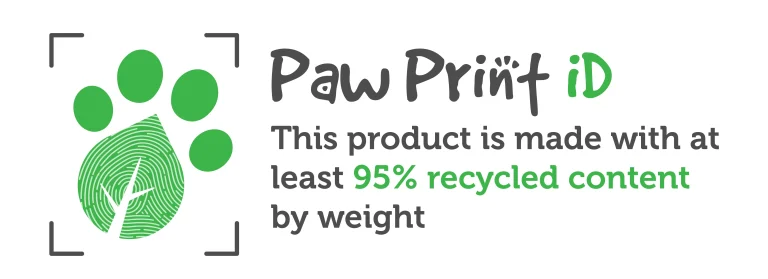
Note: Plush Animal is Unstuffed | Click Here for Stuffing Options
SKU: 60651
MSRP: $29.99
16" Xochitl the Axolotl (Blue)
BEST SELLER
Tariff Surcharge
In Stock
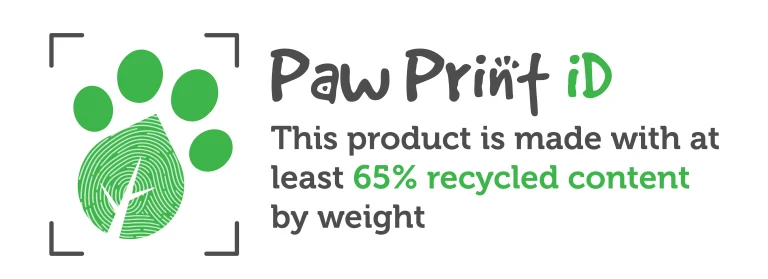
Note: Plush Animal is Unstuffed | Click Here for Stuffing Options
SKU: 60229
MSRP: $29.99
16" Serengeti the Wild Dog (Eco)
Sustainable Materials
Tariff Surcharge
In Stock

Note: Plush Animal is Unstuffed | Click Here for Stuffing Options
SKU: 60013
MSRP: $29.99
16" Scout the Camo Bear (Eco)
Sustainable Materials
Tariff Surcharge
In Stock

Note: Plush Animal is Unstuffed | Click Here for Stuffing Options
SKU: 60783
MSRP: $29.99
16" Chestnut the Squirrel (Eco)
Sustainable Materials
Tariff Surcharge
In Stock

Note: Plush Animal is Unstuffed | Click Here for Stuffing Options
SKU: 60649
MSRP: $29.99
8" Henley the Hippo (Eco)
Sustainable Materials
Tariff Surcharge
Out Of Stock
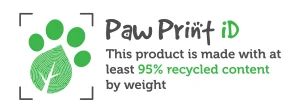
Note: Plush Animal is Unstuffed | Click Here for Stuffing Options
SKU: 50002
MSRP: $19.99
16" Araya the Arctic Fox (Eco)
Sustainable Materials
Tariff Surcharge
In Stock

Note: Plush Animal is Unstuffed | Click Here for Stuffing Options
SKU: 60492
MSRP: $29.99

